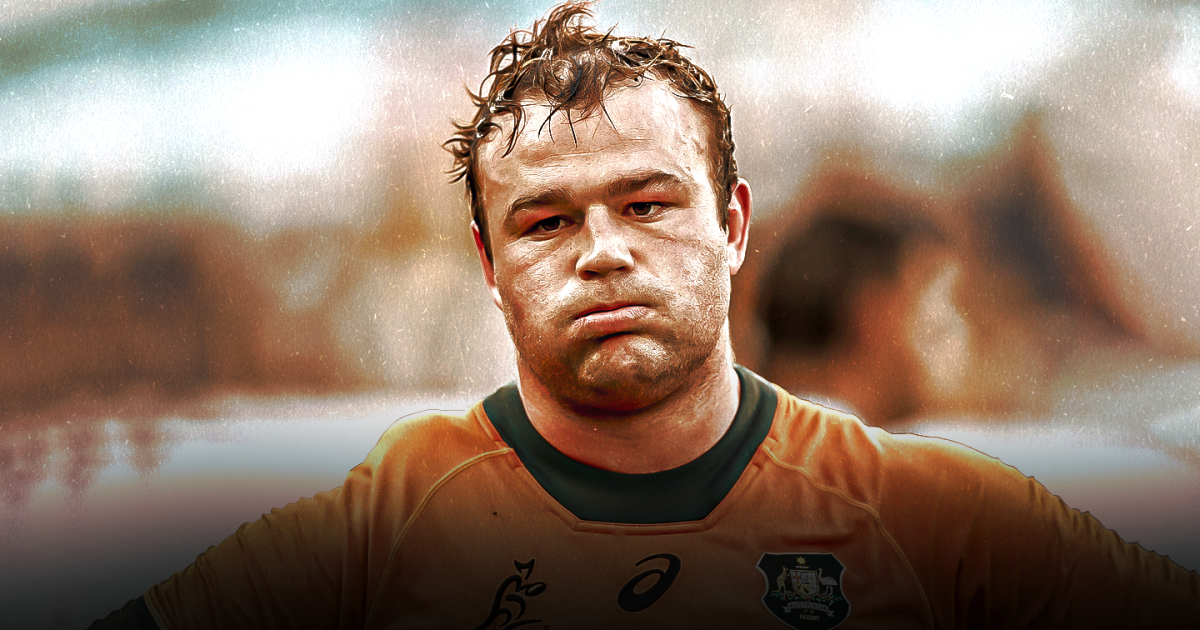As we Wallabies fans look ahead to this weekend off from the most even and up-in-the-air Rugby Championship in yonks, we might give pause to two significant developments from last weekend.
The 28-26 loss to Argentina, even in front of a ground record Allianz Stadium crowd in Sydney, might actually have done the Wallabies a big favour. And that is important, because of the second development.
New Zealand suffered a loss on home soil by a record margin. Their 43-10 thumping at the hands of South Africa more than doubled their previous biggest home defeat. Which means the All Blacks will be stinging for two full weeks leading into their next match, in which they will definitely be wanting a reaction.
That next match is the first Bledisloe Cup Test. At Eden Park. In Auckland. Yay.
So, the Wallabies should probably be thankful Los Pumas have forced them into a healthy dose of introspection in this week off, effectively erasing any chance of over-confidence, if we even dared contemplate the idea of complacency before a Bledisloe Cup series.
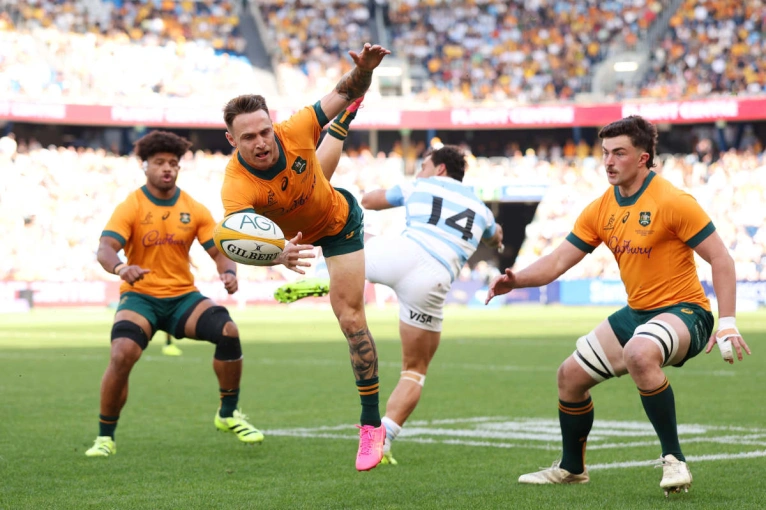 Australia allowed the game to get away from them as the Pumas pounced on errors and indiscipline (Photo Matt King/Getty Images)
Australia allowed the game to get away from them as the Pumas pounced on errors and indiscipline (Photo Matt King/Getty Images)
The Wallabies simply have to sharpen up now. Because we don’t even need to put into words what could happen if they get ahead of themselves heading to Eden Park.
There will be an All Black reaction, for sure
It’s bad enough when the All Blacks lose close to Bledisloe Cup fixtures, but the way they just had no response to the Springboks’ surge in the second half in Wellington – and now all the fallout and commentary that has flowed in the days since – means the Wallabies need to brace for the biggest reaction they’ve ever seen.
Perhaps there is a silver lining loss for the All Blacks too, with more than a few questions now being asked of their methods and efficiency, in that at least the loss was only in Wellington, where the ‘Boks have won several times since the 2011 RWC, and are now unbeaten in their last three starts at the ‘Cake Tin’. If the Eden Park record had tumbled in the 33-point loss, I can’t even imagine the depth of the fallout, or how long it would linger.
The Wallabies should certainly see the first Bledisloe Test as an opportunity; the need to react to the record thumping versus the fear of being the team to surrender Eden Park could have a crippling effect on the All Blacks – and the Wallabies need to be good enough to exploit that.
But they certainly shouldn’t expect that will be the case. The Australians should expect the biggest, meanest, most clinical reaction from a wounded New Zealand side their minds will allow them to conjure.
Because that’s definitely what All Blacks supporters expect now, too.
Too many turnovers in Sydney, way too much overplaying
It was a nervous old start for the Wallabies in the blazing sunshine on Saturday afternoon, and that’s despite scoring first with a really well-worked try for Joseph-Aukuso Suaalii in the fifth minute.
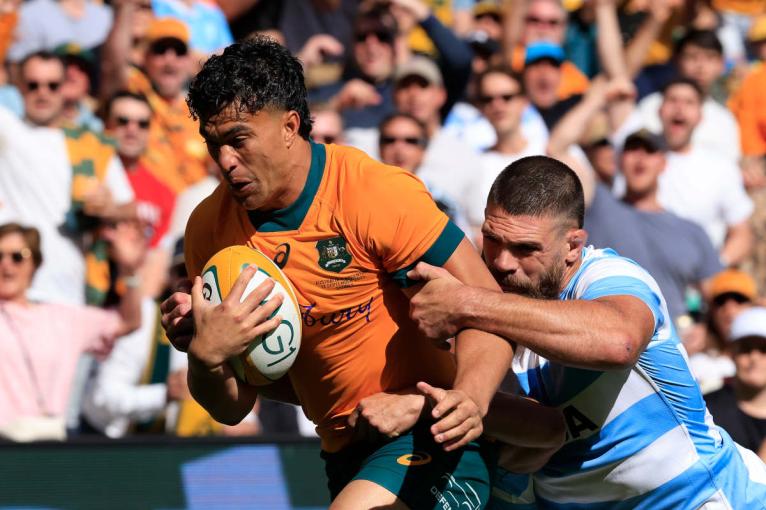 Despite Suaalii’s fourth try in four Tests early on, the Wallabies couldn’t capitalise on their start (Photo Mark Evans/Getty Images)
Despite Suaalii’s fourth try in four Tests early on, the Wallabies couldn’t capitalise on their start (Photo Mark Evans/Getty Images)
From there, too many players were guilty of pushing questionable offloads to team-mates in worse positions than themselves, or worse, in no position to receive an offload at all.
Officially, the stats sheets read 18 Wallabies turnovers conceded, and I’d hazard a guess well over half were before the break, where they appeared to have an urgent need to win the game with every possession.
But evidently, offloads were banned by Joe Schmidt in the sheds at half-time, because players who previously needed only the slightest sniff of opportunity to look for the offload were now tucking the ball under the arm and just getting on with carrying well and making metres.
The Wallabies had been widely complimented for their composure and decision-making through the first three rounds of the tournament, but it was nowhere to be seen to start with in Sydney.
It’s no coincidence more passes started sticking and more space was being found once the over-playing was toned right down. With fatigue becoming a factor, and fresh players coming into the contest, Australia didn’t need to over-play to make things happen.
Without this composure in the first half, the Wallabies had a real air of panic about them, which only got worse as Argentina pushed their lead out beyond two converted tries.
Thankfully, they regained their way and climbed back into the contest by picking their moments better and making the most of opportunities. And yes, a terrible forward pass was allowed to stand late in the game.
But the lesson of the first half was clear: stop panicking. The Wallabies had been widely complimented for their composure and decision-making through the first three rounds of the tournament, but it was nowhere to be seen to start with in Sydney.
Against better teams, they might not get the chance to regain it.
Comebacks are great, but they’re not for everyone
I mentioned last week after the Townsville win how Joe Schmidt chuckled while conceding he was impressed with the Wallabies’ ability to come back in games, before delivering the proper answer to the question.
“I’m not that keen on us being where we were,” he said, before again lauding his team’s ability to get back in the contest against a Los Pumas team he clearly respects immensely.
And he makes a decent point. The Wallabies have trailed at half-time in five of their eight games played in 2025, including the last four straight games of The Rugby Championship. The 10-point margin at the break in Cape Town was the slimmest of those four margins, and the scoreboard picture got worse before it got better in most of them. Yes, the Wallabies came back in all four, but gee, it’d be nice to lead some games from the outset, wouldn’t it? Because some teams just won’t let you come back.
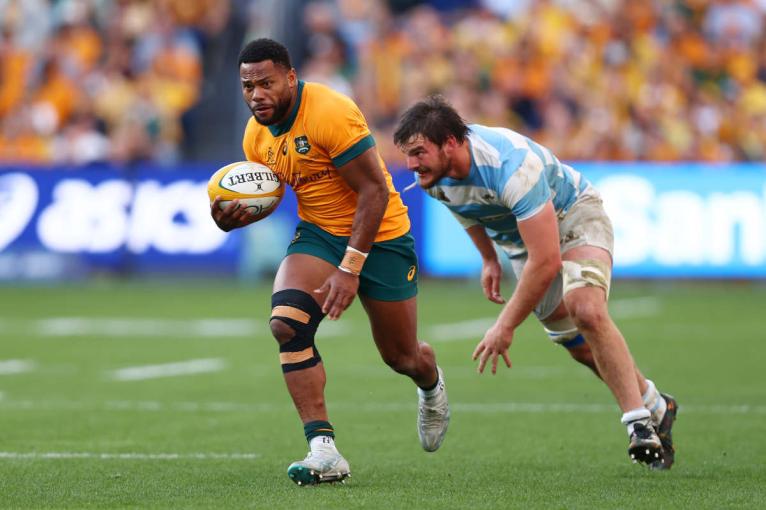 Filipo Daugunu’s two late tries almost capped another famous comeback, but it came up short (Photo Jason McCawley/Getty Images)
Filipo Daugunu’s two late tries almost capped another famous comeback, but it came up short (Photo Jason McCawley/Getty Images)
The All Blacks have only trailed at half-time once in 2025, the third Test against France, but won the game anyway. Against Argentina in the second week of the TRC, it was 13-13 at the break before Los Pumas recorded an historic win. On Saturday in Wellington, New Zealand led 10-7 at the half and that was good as it got.
But in the six games the All Blacks have led at half-time this year, they won five of them. That should be incentive enough for the Wallabies to start well.
Trying a few things confirmed Schmidt’s best options
It was important the Wallabies managed a few workloads last week, while simultaneously resting a few niggles and taking a look at the would-be next-in-lines in a few positions.
It was also a chance to observe in a live-firing situation how big a gap there might be between options.
On the surface, the Wallabies looked pretty consistent; the set-piece held up pretty well, with no lost scrums and just the one lineout, while still pinching one from Argentina for good measure. Tackle completion was roughly where it has been in recent weeks, too.
But there were certainly more penalties conceded and skipper Harry Wilson was getting visibly and audibly frustrated with referee Christophe Ridley – which was more than mutual, given Wilson at one point found himself apologising for the way a question came out. A few days on, I suspect the captain would probably recognise he took the constant questioning of the man in the middle a bit too far.
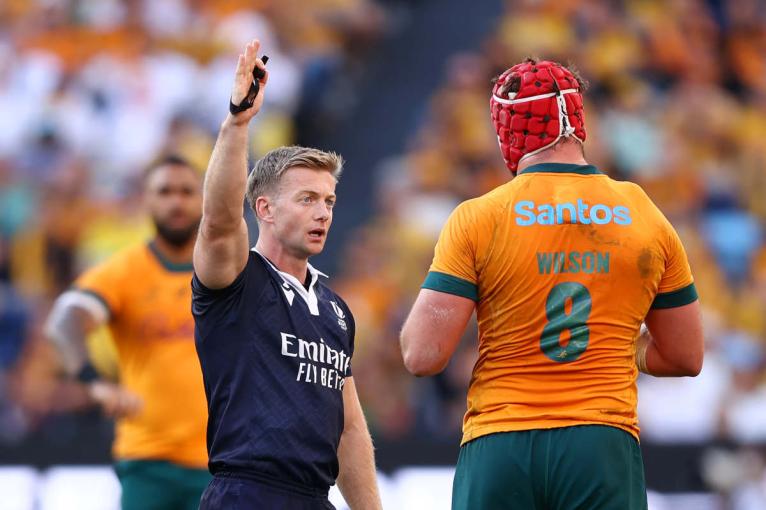 Wilson sounded frustrated in his conversations with referee Christophe Ridley (Photo Jason McCawley/Getty Images)
Wilson sounded frustrated in his conversations with referee Christophe Ridley (Photo Jason McCawley/Getty Images)
Regardless, and for all this, there was certainly a clunkiness about the Wallabies’ performance, and that was likely a major factor in Argentina getting out to as big a lead as they did. As was the fact they played some outstanding rugby, for the record. Players definitely were guilty of over-playing their hand, and the team lost their way for long periods through the first hour because of it.
This will still be useful for Schmidt, however. Whether this performance counts against some players will become clear in time, but it’s still important to know that the coach has been running out his best players most weeks in 2025.
Australia’s search for more playing depth is underway
In front of small, but knowledgeable, crowds at Pittwater Rugby Park on Sydney’s northern beaches, and Brisbane’s iconic Ballymore Oval, Australian rugby’s desperate need to lengthen the development pathways and deepen the playing depth pool got underway this weekend just gone.
Super Rugby AUS puts the four Australian Super Rugby Pacific squads up against each other for three weeks, plus a final. It gives the states a chance to get more game time into their squads, and especially their academy players, and without their Wallabies, also provides opportunities for the best club players from the four respective competitions in Canberra, Sydney, Brisbane and Perth.
They’ve done it the cheapest, easiest, quickest, most convenient and least offensive way they could, but none of that really matters. All that matters is that it’s finally happening.
The results are almost unimportant. For what it’s worth, the Western Force beat the NSW Waratahs 24-3 in Sydney on Friday, while the Queensland Reds held out the ACT Brumbies, winning 36-26 in Brisbane on Sunday. But the results really are unimportant.
What’s important is Australian players are getting more meaningful game time. Since the demise of the National Rugby Championship in 2020, there has been nothing in that increasingly widening gap between the community and professional games. Australian players simply don’t play enough rugby, and the states have been crying out for something like this.
This competition will definitely help that. It probably needs to be longer, and there’s an easy argument that not many people knew it was on, but the point is, Australian rugby is again trying to develop a meaningful third tier that will get players more ready for Super Rugby than otherwise would’ve been the case.
They’ve done it the cheapest, easiest, quickest, most convenient and least offensive way they could, but none of that really matters. All that matters is that it’s finally happening.

